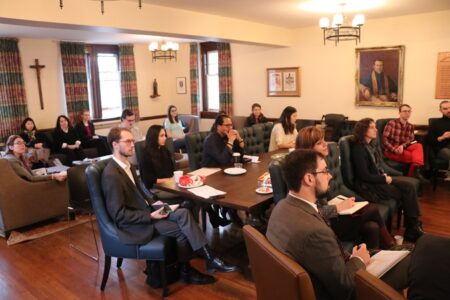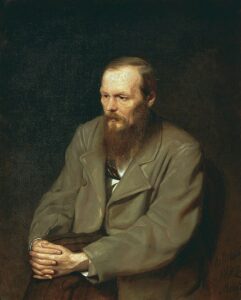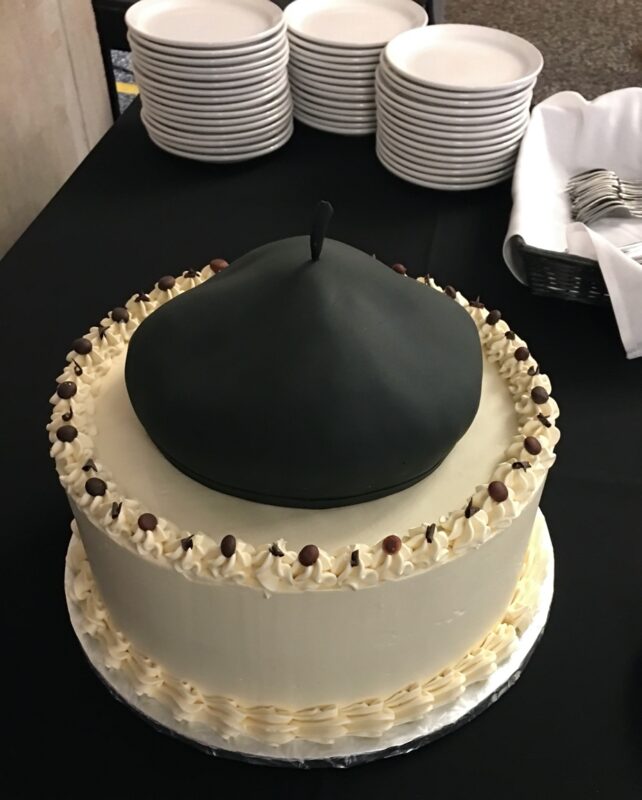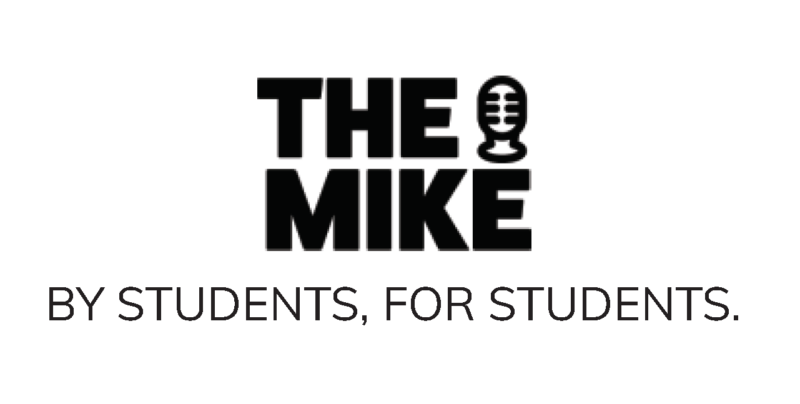A new partnership with Indspire has created the “University of St. Michael’s College in the University of Toronto” award for Indigenous students.
First Nations, Inuit, and Métis students enrolled at St. Michael’s in undergraduate programs, the Regis-St. Michael’s Faculty of Theology, and the diploma in Social Responsibility & Sustainability are all eligible to apply.
Eight awards of $4,400 each will be granted annually. The funds go directly to the students, to be used for tuition, residence fees, or other expenses.
Applications are made via Indspire, which will oversee the selection and award process.
“We are grateful for the opportunity to partner with Indspire to provide support for our Indigenous students,” says University President David Sylvester. “This is a significant moment for St. Michael’s.”
Indspire is a national Indigenous registered charity that invests in the education of First Nations, Inuit and Métis people for the long term benefit of these individuals, their families and communities, and Canada.
Please see the Indspire website for more information on how to apply for the “University of St. Michael’s College in the University of Toronto” award.
Ever wonder how all the disparate aspects of a university fit together—how the sciences inform the arts or why breadth requirements matter or what the benefits of a degree in the humanities might be? These weighty and compelling questions will be part of the conversation this coming Saturday at the fourth annual St. Michael’s student research colloquium, where some of our community’s brightest minds will make their arguments on how the knowledge we gain in particular subjects fits together as a whole.

Knowledge, Belief, Wisdom: What’s Universal About the University? begins at 1 p.m. March 26 in the Basilian Common Room. The event presents the work of both undergraduate and graduate students in the St. Michael’s community. The afternoon will include three panels of four presenters each—one group presenting papers on Literary Visions of the University’s Mission, one on Seeking Truth in the University, and a final panel on A Feeling for Knowledge: Affect, Encounter, and the University.
Gilson Post-Doctoral Fellow Bernadette Guthrie, one of the organizers of the colloquium, says the topic stems from conversations she and some of St. Michael’s junior fellows had with students over the course of the year, reflecting their questions and interests.
The event allows students at various stages of their academic careers to present to, and to learn from, each other, whether it is an undergraduate listening to the arguments presented by a doctoral student, or a graduate student aspiring to teaching listening to the kinds of questions raised by a second-year student.
But the event is also an opportunity for the university to appear in a rich and robust way as it seeks a shared understanding in able to respond to problems in the modern world, Guthrie says.
“I am so struck by the student community at St. Mike’s,” says Guthrie, noting how impressed she is with things like student-organized reading groups, informal conversations between professors and students after class, and the welcoming atmosphere.
It is precisely that community that drew Molly Franssen Keenan to this year’s colloquium. While a first-year student at the neighboring University of Victoria College, Keenan attended a Christianity and Culture social at St. Mike’s and learned of the event through a student.

Keenan, part of the first panel on literary visions of a university’s mission, will present a paper looking at how Raskolnikov, the protagonist in Fyodor Dostoevsky’s Crime and Punishment, would fit into today’s University of Toronto, a paper she has designed to speak to the experience of current students.
She says she appreciates the opportunity the colloquium presents to engage in deep thought and conversations with professors, as well as to receive academic feedback outside the classroom.
“It’s a question of finding your group—and I’m thrilled to be back at the university,” she says.
Third-year St. Michael’s student Alexander Lynch, also be part of the first panel, will be presenting a paper on the relationships between the work of T. S. Eliot and the “forms” of modern academic English.
Although Lynch’s primary area of interest in 19th-century literature, he chose this topic because he feels Eliot’s creative and critical work offers a powerful reminder of the importance of art crossing historical and national boundaries to create universal categories.
“The colloquium is a great way to engage with St. Mike’s,” says Lynch, who is presenting for his third time. “The first year I got my feet wet and learned what the process is all about. The second time gave me the opportunity to speak with a higher level of sophistication, while this year I am interested in speaking on what is particular to me.”
He expresses excitement at the thought of an in-person event in the Basilian Common Room after so many online events, laughing, “It’s giving me temporal vertigo, having presented in the space two years ago.”
Arjun Thapar says he submitted work to the colloquium because “I have always been fascinated with learning how subjects fit together. While I am a math student, I had wonderful mentors at St. Michael’s who advised me to broaden my perspective and take courses in drama and other arts areas to meet students from completely different backgrounds. An exposure to content and nuance of different areas teaches you that there is no one solution that solves everything.”
Soon to graduate with a BSc in mathematics, Thapar, who will be on the panel looking at seeking truth in the university, says the colloquium is an important step in learning to speak collegially rather than speaking at each other.
“Institutions need to be self-critical and engage in self-reflection or else they are doomed to failure,” he says. “This event is a valued effort. When you attend university you want to emerge not only capable in your field but also with a better vision of yourself.”
Doctoral student Rashad Rehman, who will present on philosopher Josef Pieper in the second panel, says his experience teaching undergraduates has shown him the benefits of a forum like the colloquium, which can model what productive and respectful disagreement looks like, finding common ground with others at a time when there is so much moral disagreement in society.
Rehman says his experience teaching has at times revealed that students’ interest in historical injustices and reparative justice often stems primarily from a desire to engage in activism rather than a precise understanding of what has happened, adding that first one has to understand before one can act effectively.
The very idea of bringing together a group of students whose ages, areas of interests and academic career timelines demonstrates the existence—and value—of the universal in the university, Rehman says.
“The university is the place that preserves an understanding of what universal means,” he says, “and, in doing so, preserves the whole person.”
To a person, participants and organizers have expressed great excitement at being back on campus for Saturday’s event.
“It means a great deal to be to be in the Basilian Common Room, which is part of the history of St. Mike’s—to have intellectual conversations in a warm space—that’s what St. Mike’s can do at its best, broadcasting to a larger community what St. Mike’s is all about,” says Guthrie.
Knowledge, Belief, Wisdom: What’s Universal About the University? will take place Saturday, March 26 from 1 to 5 p.m. in the Basilian Common Room on the third floor of Brennan Hall. The event is free and open to the public; no advanced registration is required.
Chiara Greco is a fourth-year student studying Philosophy and English at St. Mike’s College. Since her second year she has been involved with student journalism and harbours a deep passion for the field. She is currently the Editor in Chief of The Mike, our official student newspaper.
The Importance of Student Journalism to Campus Life
When I reflect on the importance of student journalism, especially in a time when we have been struck with a global pandemic, my immediate reaction is to create a defence of the field. To rake up all the reasons in my head why student journalism is important and worthwhile. While I can’t be sure where this response came from, I am sure that many people question the choice of being a student journalist—of the added stress without perhaps the large reward or payoff, or even exposure, that professional journalists get in breaking stories. While I’ve been told the career path I have chosen may be a “dying field” I’ve still prospered through my experience and, if anything, this global pandemic has shown me exactly why student journalism is so important.
In a time of social distancing the importance of staying connected through stories, media, and news is so pertinent. Our current global crisis has unveiled the dependence we all have on media and news to connect us. I’ll be the first to admit that virtual living—and learning, for that matter—can be very impersonal, and presents a challenge to most. But the job of student journalists is to bridge this gap between virtual life and ‘normal’ life for students across the university community. Student journalism is a pillar of university life on campus, and with our new-found virtual world, student journalists are those who will form the path towards online community. Stories are the basis of life, the overarching connection we all have to each other, and it is through journalism that these stories get communicated.
While my experience will not speak for everyone, I understand the importance of representing the masses, of being a voice to and for the unheard, and of cultivating a personal experience through our shared stories. Student newspapers like The Mike are an avenue in which this cultivation takes place—and, frankly, it’s hard to imagine university life without student newspapers or the journalists who staff them.
My time at St. Michael’s College has been defined by my involvement with The Mike, starting at the beginning of my second year. From working on the news team to becoming the Editor in Chief, I’ve understood that student journalists have a nuanced responsibility to their peers. We have a responsibility not only to hold our school accountable but also to be a reliable source of student life and news. Integrity, facts, and accountability summarize the three pillars which have come to define my experience of student journalism, and they will continue to guide me through my role with student publications.
Over the summer as I prepared for my role as Editor-in-Chief I faced many challenges in reinventing the paper as an online periodical. The future of The Mike fell into my hands, and while it may have seemed like a large task to take on, especially with the challenges of the pandemic, I was privileged to represent the St. Mike’s community. As I transitioned into my role I began to prepare for things none of my predecessors had to ready for—how to run a printed student newspaper during a global pandemic. With no precedent, changing the course of The Mike meant I had to evaluate the immense role student newspapers have within the university community. To put it simply, without student newspapers one of the most crucial aspects of student life would be taken away. In this way, The Mike’s achievements and success translate directly into St. Mike’s overall successes and achievements.
For as long as can be remembered The Mike has delivered students with a print version of the paper across campus newsstands. But the newspaper has been forced to make some hard decisions, such as forgoing our printed paper for now. But since The Mike’s inception our intake of news as students has changed drastically. While an online publication may take away the feeling of holding a physical copy of your work, we now rely more than ever on online avenues to give us news and connection, so The Mike’s online home has gone through a complete 180. We’ve changed our website and delivery to allow more students to access and stay up to date with our publication and newsletters.
It is the duty of student journalists to deliver their colleagues’ voices on campus. The importance of cultivating a community across borders is exactly why student journalism is so valuable, because without it the distance between us would be far exacerbated. Student journalists, like professionals in the field, need to become experts on our own community. We need to become a voice for those students who may otherwise not be represented on campus. But this wide range of representation is only accomplished if students contribute their voices. The more voices published in The Mike, the more the diverse and accurate the representation of our community. So while a printed copy of the paper would be an ultimate goal, we have to remember the importance of accessibility and inclusivity when representing the student community. In a time of social distance, it only makes sense for student journalists to present student life as such.
While this pandemic has taught me many things, both good and bad, navigating my role as a student journalist and Editor in Chief of The Mike will perhaps be one of my biggest takeaways. Student journalism is at the heart of every university and college campus. It’s what connects us all.
Read other InsightOut posts.
Mike Czobit is the director of the Office of the Principal, and the coordinator of SMC One. Before joining St. Michael’s in 2017, he was an editor and writer at World Vision Canada.
There Will Be Cake

Every year, before the Gilson Seminar in Faith and Ideas meets for its first lecture in September, we have an opening reception and something we call the “Beret’ing In.” To the tune of Prince’s “Raspberry Beret,” each incoming Gilson Seminar student approaches the lectern in Charbonnel Lounge and receives a black beret, officially joining the seminar. After every student has been beret’ed in, cake is served—a special kind of cake: raspberry beret cake.
This tradition is a night of fun and introductions before the hard work of the Gilson Seminar begins. The course, which is split into two half-term classes over the course of the year, is one of three first-year seminars offered by St. Michael’s College as part of our SMC One program. The other two seminars are the McLuhan Seminar in Creativity and Technology and the Boyle Seminar in Scripts and Stories.
These seminars are among the most popular first-year courses at the University of Toronto, owing to a number of factors. For example, each is taught by a member of our talented St. Michael’s faculty in a small class setting that fosters fascinating discussions and close friendships with fellow classmates, and each features an international learning experience. In the Boyle Seminar, students are invited to travel to Dublin after the April exam period. A trip to Silicon Valley takes place during reading week for the McLuhan Seminar. And the Gilson Seminar’s second half-course has its destination in its title: The Gilson Seminar in Faith and Rome.
For most people, international travel these days has been ruled out for health and safety reasons, and for the impracticality of visiting a country when it likely requires a quarantine upon arrival. But, back in February, before the present conditions of international travel took hold, there still was the possibility to go to Rome or Dublin. In fact, that was the plan for both the Gilson and Boyle classes (the McLuhan Seminar had traveled to Silicon Valley last November, before anyone here had really heard of the virus).
In the Principal’s Office, we are responsible for organizing all three SMC One trips. Throughout January and February, we proceeded as usual, preparing students by holding Safety Abroad workshops, requesting traveler information, and making airfare arrangements. We worked with our partners in Dublin and Rome to finalize details for each trip, and in the case of Rome, arranged for tickets for the Pope’s Wednesday Audience. Everything was proceeding as it had every year, except, as everyone knows now, this wouldn’t be a normal year.
By late February, my office was paying particular attention to reports of COVID-19 cases emerging worldwide. When the first few cases surfaced in northern Italy, we were concerned but hopeful that the country would get control of the virus. Reflecting on that now makes me realize how little we all knew and how naïve my optimism was. Day by day, in early March, the number of infected patients rose. Not just in Europe, but also at home. These developments worried our SMC One students, who began asking my office questions about the safety of our planned trips. At the time, we honestly didn’t know what the virus would mean, but we assured our students that safety would be paramount and that the trips could be postponed. Then, on March 12 that happened. The University decided that due to safety concerns, all student travel would be postponed until further notice. This was the right decision.
After we unwound the arrangements for the planned trips, my office had a different task to attend to, which was to start recruiting for next year’s SMC One seminars. When we promote these classes, we do the opposite of shying away from discussing their travel components. But during this recruitment period, getting on a plane to go somewhere far away seemed like the least desirable thing to do. At the same time, the 2020–21 SMC One seminars were months away and the situation in March would change—and, to be optimistic, be much, much better.
We pushed forward with our recruitment effort, inviting incoming U of T students to apply for a spot in our seminars. We expected that we would struggle to fill the classes. We expected that SMC One would have lost its popularity. What happened was something different.
When the application window closed on June 15, we had received the highest number of applications for SMC One in the three years their present format has existed. In fact, we doubled the total number of applications over our previous best. Our incoming students were not deterred by news reports of the virus or of how international travel will never be the same. They reacted to the closing of borders with a greater desire to see them open again. What they want, and what classes such as SMC One will provide, is a return to better times when a desire to explore and experience life and culture in different parts of the world can enrich a university education.
As the new academic year begins, we have begun planning for our SMC One classes. Different this year is that all three will take place in the Winter term, with the hope that all will be able to be in-person or have a larger in-person component than is safe in the Fall term. It is too early to know what international travel will look like in 2021, but we’re hopeful that conditions will improve.
Every year, the Gilson Seminar begins with berets and cakes. We hope to see this tradition resume in this coming year’s Gilson class. And when the cake is finally served, it will have the double meaning: welcoming a new class to St. Michael’s College and also celebrating how far we’ve come through difficult times. When we began our recruitment effort for SMC One in the spring, we were pessimistic about our prospects of filling these classes. Our students showed we should have felt otherwise.
Read other InsightOut posts.


